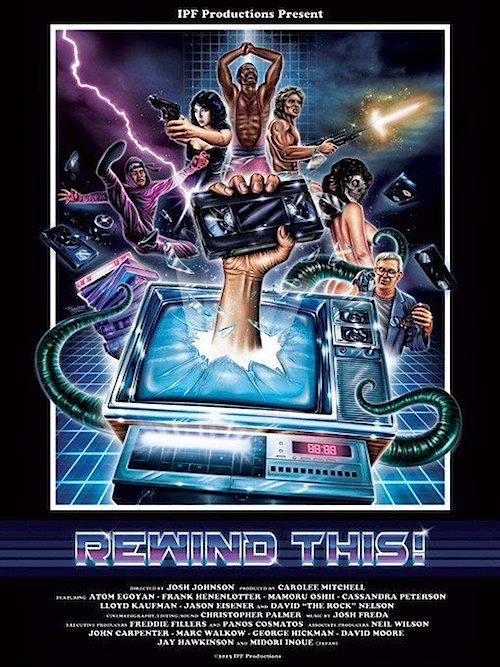By Joe Bendel. In its 1980’s heyday, Times Square was the place to find hipsters and lowlifes in close proximity. Today, if you need a similar ambiance for a remake of William Lustig’s grindhouse fan favorite Maniac, there is only one place to go: Los Angeles. You might well ask why someone would want to remake Lustig’s schlocker, but Franck Khalfoun has, so here it is, opening this Friday in New York at the IFC Center.
In Khalfoun’s reboot, Frank Zitto still has a thing for mannequins and mother issues that would give Norman Bates pause. No longer a schlubby apartment super, he is now the nebbish proprietor of his family’s mannequin supply company. Business is about as brisk as it is at the Bates Motel, allowing Zitto plenty of time to prey on women. For Zitto, it is all about the hair. When a coif strikes his fancy, he stalks the owner, killing and scalping her. He brings his trophies home to adorn his personal stash of mannequins.
Despite all logic, Zitto develops an ambiguous friendship with a woman. Anna, a French expat and experimental photographer, shares his fascination with mannequins. Instead of killing her, he starts to have relationship notions. However, his homicidal urges continue unabated.
While Elijah Wood receives top billing, he is mostly heard rather than seen throughout Khalfoun’s Maniac. In a dubious attempt to be provocative, Khalfoun shows the grisly events unfold through Zitto’s eyes. Initially, this gimmick is only moderately annoying, but it becomes progressively more so as the film slogs along.

Casting Wood as the psycho killer is a bit problematic, because most of his victims could keep him at bay simply by palming his forehead. Regardless, the film’s misogynistic impulses are far more troubling. It is not content to dispatch Megan Duffy’s inked-up Lucie in typically gruesome fashion. It first forces her to voluntarily relinquish her dignity. Frankly, the cheap thrills in this Maniac are better described as cheap rather than thrilling. Yet, somehow Khalfoun’s Maniac has arthouse pretensions, even bringing the classy Nora Arnezeder aboard as Anna. Unfortunately, her winning screen presence is undermined by the character’s profoundly poor judgment.
One could raise a host of issues with the film, but the bottom line is that it just isn’t any fun. Still, in their way, both Maniacs 1.0 and 2.0 are a tribute to the Giuliani transformation of 42nd Street. The fact that such grubby exploitation is now at odds with the City is a good thing for those of us who live here. Not recommended, Khalfoun’s Maniac opens Friday (6/21) at the IFC Center for its built-in grindhouse fan base.
LFM GRADE: D-
Posted on June 19th, 2013 at 1:21pm.





